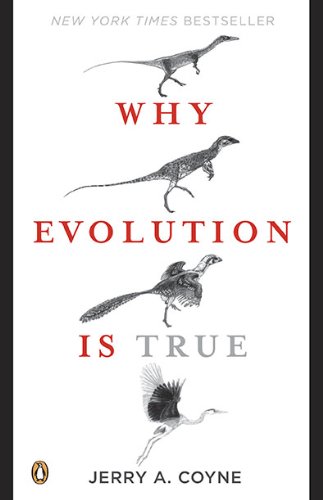There Are Human Races
In response to these distasteful episodes of racism, some scientists have overreacted, arguing that human races have no biological reality and are merely sociopolitical “constructs” that don’t merit scientific study. But to biologists, race—so long as it doesn’t apply to humans!— has always been a perfectly respectable term. Races (also called “subspecies” or “ecotypes”) are simply populations of a species that are both geographically separated and differ genetically in one or more traits. There are plenty of animal and plant races, including those mouse populations that differ only in coat color, sparrow populations that differ in size and song, and plant races that differ in the shape of their leaves. Following this definition, Homo sapiens clearly does have races. And the fact that we do is just another indication that humans don’t differ from other evolved species.
[...]
As we would expect from evolution, human physical variation occurs in nested groups, and in spite of valiant efforts by some to create formal divisions of races, exactly where one draws the line to demarcate a particular race is completely arbitrary. There are no sharp boundaries: the number of races recognized by anthropologists has ranged from three to more than thirty. Looking at genes shows even more clearly the lack of sharp differences between races: virtually all the genetic variation uncovered by modern molecular techniques correlates only weakly with the classical combinations of physical traits such as skin color and hair type commonly used to determine race.
Direct genetic evidence, accumulated over the last three decades, shows that only about 10 to 15 percent of all genetic variation in humans is represented by differences between “races” that are recognized by difference in physical appearance. The remainder of the genetic variation, 85 to 90 percent, occurs among individuals within races.
Notes:
It is wrong to pretend they do not exist, but we should remember that the differences between human races are minor compared to the genetic differences between individuals within a race.
Folksonomies: evolution prejudice species race
Taxonomies:
/science/medicine/genetics (0.517508)
/science/biology/zoology/endangered species (0.500405)
/society/racism (0.361897)
Keywords:
races (0.925443 (negative:-0.575720)), genetic variation (0.745950 (negative:-0.440396)), human races (0.678723 (negative:-0.437882)), perfectly respectable term (0.617040 (positive:0.855945)), human physical variation (0.554932 (neutral:0.000000)), modern molecular techniques (0.517886 (negative:-0.381501)), Direct genetic evidence (0.480808 (negative:-0.332369)), plant races (0.476498 (neutral:0.000000)), distasteful episodes (0.364830 (negative:-0.587680)), genetic differences (0.362173 (neutral:0.000000)), biological reality (0.331666 (neutral:0.000000)), sparrow populations (0.329268 (negative:-0.206385)), mouse populations (0.320165 (neutral:0.000000)), sharp differences (0.309212 (negative:-0.713558)), sharp boundaries (0.303410 (negative:-0.501718)), valiant efforts (0.294623 (positive:0.339944)), coat color (0.289586 (neutral:0.000000)), particular race (0.286169 (negative:-0.470732)), classical combinations (0.277379 (positive:0.643274)), physical appearance (0.275357 (neutral:0.000000)), skin color (0.262921 (positive:0.643274)), physical traits (0.261452 (positive:0.643274)), humans (0.210289 (negative:-0.536865))
Entities:
Homo sapiens:FieldTerminology (0.811260 (neutral:0.000000)), three decades:Quantity (0.811260 (neutral:0.000000)), 15 percent:Quantity (0.811260 (neutral:0.000000)), 90 percent:Quantity (0.811260 (neutral:0.000000))
Concepts:
Human (0.958533): dbpedia | freebase | opencyc
Evolution (0.894492): dbpedia | freebase | opencyc
Race (0.856703): dbpedia | yago
Species (0.772395): dbpedia | freebase | opencyc
Biology (0.705666): dbpedia | freebase | opencyc
Gene (0.652918): dbpedia | freebase
Charles Darwin (0.614067): dbpedia | freebase | opencyc | yago
DNA (0.610383): website | dbpedia | freebase | yago





